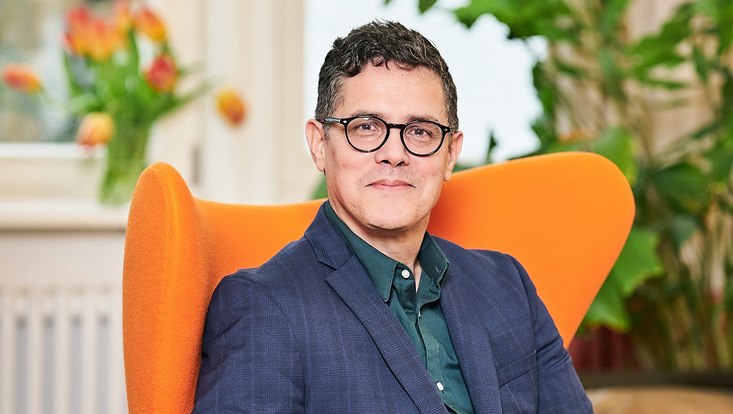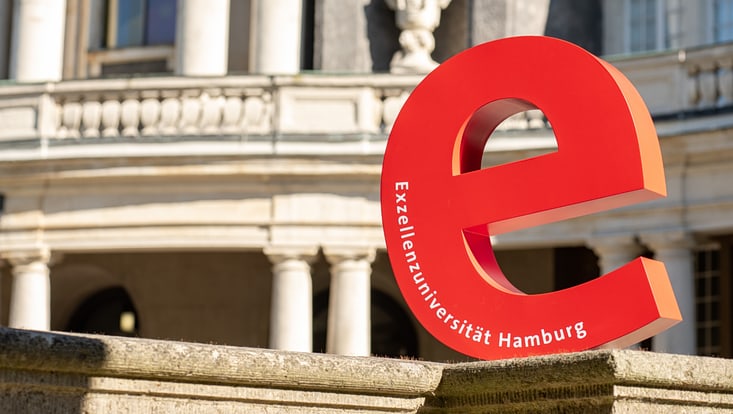New Round in the Advanced Fellowships Funding ProgramHow European perceptions still influence the tropics today
5 March 2024, by Christina Krätzig

Photo: Hias/C. Höhne
Once a year, Universität Hamburg—University of Excellence, along with other Hamburg higher education institutions, invites researchers and artists from all over the world to study in Hamburg for several months.
Prof. Funes Monzote, what does your research focus on?
I examine the socio-economic and ecological ramifications of slavery and the plantation system in the Caribbean. I especially focus on how both these things continue to shape the landscape today. In my home country of Cuba, there is no longer any untouched nature. In the nineteenth and twentieth centuries, the forests had to make way for thousands of sugarcane plantations. European plantation owners imported slaves from Africa to cultivate a plant that came from Asia. Their notions of the “the tropics” formed society and the landscape. The crazy thing is that it could have turned out differently because Cuba is suitable for growing not only sugarcane but also many other crops that thrive there. Nevertheless, the colonialists created large-scale system of single-crop farming and a society with few owners and many people with virtually no rights. That continues to have repercussions today.
Is the process of shaping the landscape now finished?
No. In Cuba, tourism has replaced sugarcane cultivation as the most important industry. Around 1850, Cuba was the biggest producer of sugar in the world. But with the increasing production of sugar from beets—a process that was first discovered here in Germany around in 1800—Cuban sugar became less competitive. During the Cold War, the Soviet Union purchased Cuban sugar at a preferential price. However, following the collapse of the Eastern Bloc, other things were needed to establish tourism as an industry: a functional infrastructure, high-quality and different types of food, and large quantities of drinking water. Furthermore, beautiful and pristine nature is a vital tourist magnet—in many places, this is an opportunity for environmental protection. However, this is based on a similar mechanism as during colonialism: Europeans and North American industrialized societies shaping the land and using it according to their perceptions of “the tropics” or “the Caribbean.”
Is this process similar throughout the Caribbean? And how is it actually defined?
Actually, the similarity of these processes is a defining characteristic of the Caribbean. Geographically speaking, it concerns the islands and the regions in and around the Caribbean Sea. However, a purely geographical definition is insufficient. The shared history, which was overwhelmingly shaped by colonialism and the slave trade, plays as big a role as the resulting culture. In certain countries, only parts belong to the Caribbean– for example, the east coast of Mexico. For some authors, it would also count the south coast of the United States as part of the Caribbean even though it lies on the Gulf of Mexico and not on the Caribbean Sea. Nevertheless, it has been influenced culturally by the many Caribbean migrants.
As an Advanced Fellowship holder, you took academic leave from your home university in Havana. What have you been using this time for?
I have been working on 2 books at the same time. This first book is a monograph about the economic, social, and environmental effects of the plantation economy following the visits of Alexander von Humboldt to Cuba in 1800 and 1804. Humboldt’s criticism of slavery and single-crop farming offers a starting point to examine the consequences of the exploitation of humans and nature. I am collecting material for this book here in Germany.
The second book aims to expand the view and examine the entire Caribbean region. The goal is a concise environmental history of the Greater Caribbean that could be useful for the general public, scientists, and environmentalists working for sustainable development.
Neither book will be ready by the summer; however, as I have none of the daily obligations of a professor here in Hamburg, I am making very good progress.
Advanced Fellowships information
Every year, Universität Hamburg—University of Excellence finances fellowships for excellent visiting scholars and artists at the Hamburg Institute for Advanced Study (HIAS) . These guests can live and work in Hamburg for several months, exchanging with Hamburg researchers and building their networks while pursuing their own research. Applications for the academic year 2025/26 can be submitted until 15 April 2024.



